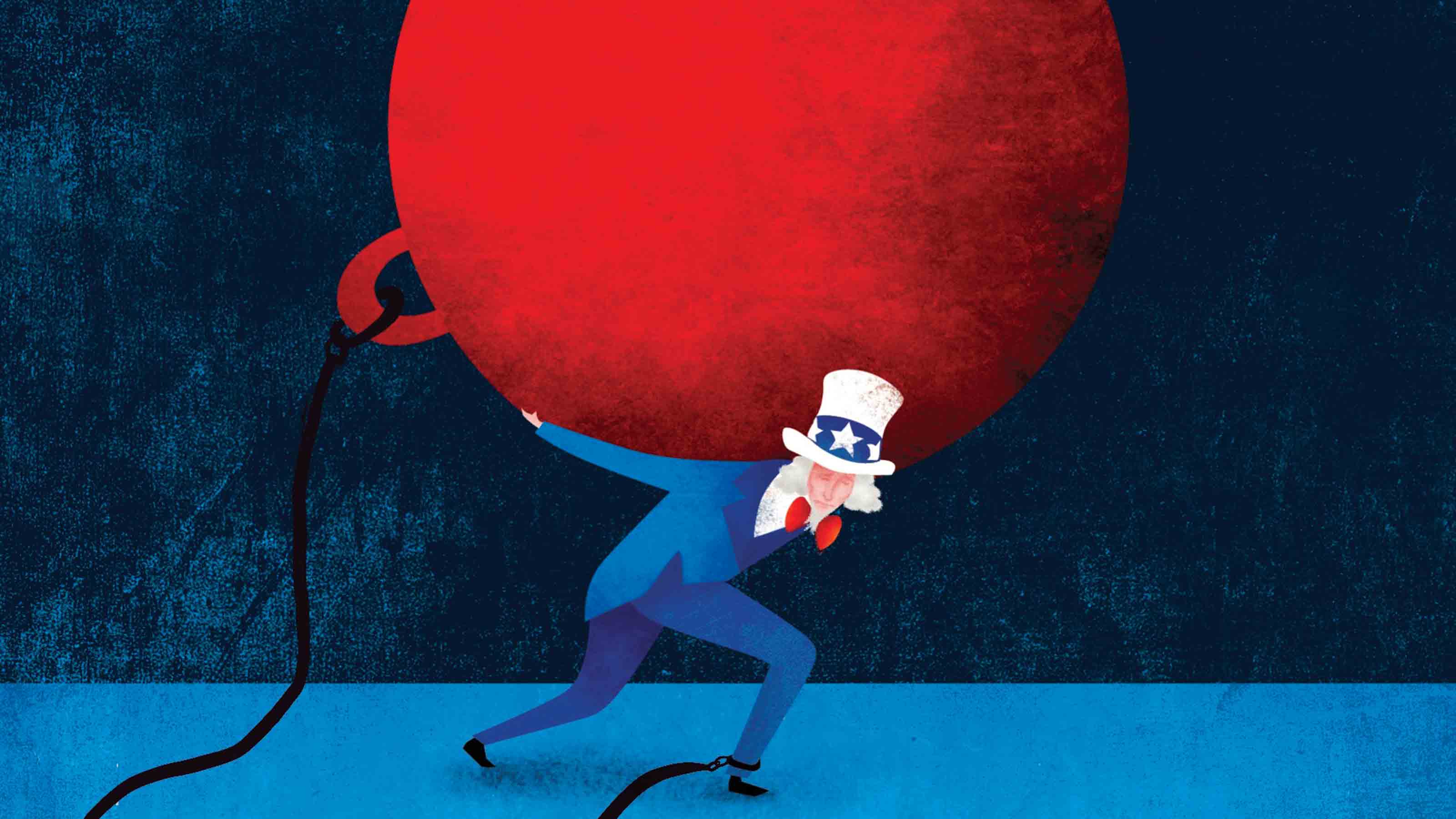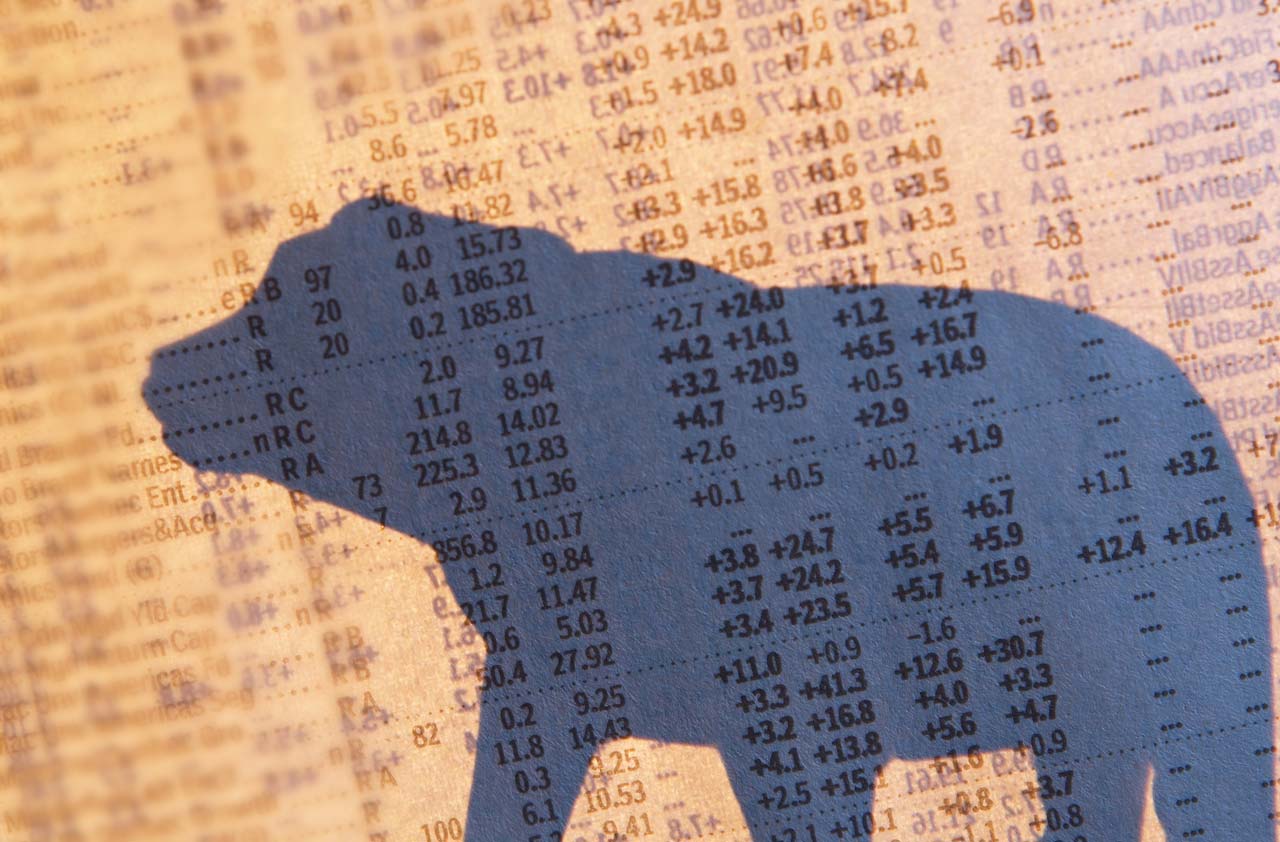Are We in a Tech Bubble? Probably Not
Apple's sky-high valuation and Facebook's IPO are more telling of "animal spirits" than another pending market collapse.

Profit and prosper with the best of Kiplinger's advice on investing, taxes, retirement, personal finance and much more. Delivered daily. Enter your email in the box and click Sign Me Up.
You are now subscribed
Your newsletter sign-up was successful
Want to add more newsletters?

Delivered daily
Kiplinger Today
Profit and prosper with the best of Kiplinger's advice on investing, taxes, retirement, personal finance and much more delivered daily. Smart money moves start here.

Sent five days a week
Kiplinger A Step Ahead
Get practical help to make better financial decisions in your everyday life, from spending to savings on top deals.

Delivered daily
Kiplinger Closing Bell
Get today's biggest financial and investing headlines delivered to your inbox every day the U.S. stock market is open.

Sent twice a week
Kiplinger Adviser Intel
Financial pros across the country share best practices and fresh tactics to preserve and grow your wealth.

Delivered weekly
Kiplinger Tax Tips
Trim your federal and state tax bills with practical tax-planning and tax-cutting strategies.

Sent twice a week
Kiplinger Retirement Tips
Your twice-a-week guide to planning and enjoying a financially secure and richly rewarding retirement

Sent bimonthly.
Kiplinger Adviser Angle
Insights for advisers, wealth managers and other financial professionals.

Sent twice a week
Kiplinger Investing Weekly
Your twice-a-week roundup of promising stocks, funds, companies and industries you should consider, ones you should avoid, and why.

Sent weekly for six weeks
Kiplinger Invest for Retirement
Your step-by-step six-part series on how to invest for retirement, from devising a successful strategy to exactly which investments to choose.
Round about the caldron go; In the poison'd entrails throw...
Bubble, bubble, toil and trouble
(With apologies to William Shakespeare)
From just $107.88 $24.99 for Kiplinger Personal Finance
Become a smarter, better informed investor. Subscribe from just $107.88 $24.99, plus get up to 4 Special Issues

Sign up for Kiplinger’s Free Newsletters
Profit and prosper with the best of expert advice on investing, taxes, retirement, personal finance and more - straight to your e-mail.
Profit and prosper with the best of expert advice - straight to your e-mail.
Are the alchemists of finance brewing another bubble even as we're struggling to escape the brutal aftermath of the last one in real estate? The frothy signs of a tech bubble are hard to miss.
INTERVIEW: No Bubble for Tech Stocks
Take Apple's stock. The world's most valuable company sports a market capitalization of some $530 billion, with its stock in the $530-a-share range (down from a peak of $636 on April 9, 2012). Apple's stock is up a dizzying 334% since the first iPhone was sold in June 2007, and it's up 126% since the iPad went on sale in April 2010. Research analysts, such as Gene Munster, of the brokerage firm Piper Jaffray, are racing to predict when the stock will go to $1,000 a share, a price that would push Apple's stock market value to more than $1 trillion.
The bubble-in-the-making murmur from Silicon Valley to Wall Street isn't just about Apple. Look at Facebook. It bought Instagram -- a two-year-old photo-sharing application with 30 million users, a dozen employees and no revenue -- for $1 billion. And Facebook's pricing for its initial public offering puts the value of the social-media behemoth at $105 billion -- a stratospheric figure for a company with $4 billion in revenue last year and an estimated $6-plus billion this year. The tech-laden Nasdaq Composite index is up 126% since hitting its low in March 2009. Standard & Poor’s 500-stock index has gained 105% over the same time period.
Shades of the dot-com era? Not so fast. At most, we're watching "bubblettes" forming.And while it may sound heretical, we should all hope the bubblettes eventually transform themselves into a balloon that buoys the overall economy. The unleashed animal spirits of speculative investment in high-tech would invigorate business activity far faster than anyone could reasonably expect from the dreadful economy of the past five years.
Yes, valuations are on the rise, especially for the Silicon Valley-based, consumer-oriented, social-media and advertising-supported sides of the high-tech market. But investors seem less dazzled elsewhere in the tech universe, including with regard to firms with more of a business-to-business focus. Most telling, it's hard to find signs of widespread delusion, the mass madness of the investing crowd, a speculative frenzy among ordinary investors and Wall Street professionals. "You can't have a bubble absent widespread, intense belief," said Silicon Valley serial entrepreneur Peter Thiel in a lecture at Stanford University in April.
He's right, of course. What's striking is how subdued the attitude is toward high-tech innovation outside of Silicon Valley. A major reason is gnawing doubts about the economic returns from the current generation of innovations, from the Internet to smart phones to social media. Economists such as George Mason University's Tyler Cowen, author of the e-book The Great Stagnation, argue that the economic gains from the current generation of innovations pale next to the transformative inventions of the late 19th to mid 20th centuries. Electricity, the automobile, the telephone, radio and other technological advances of that era truly transformed everyday life and the economy.
Alas, periods of major technological innovation also usually end up stoking speculative frenzies. Investors become increasingly optimistic that the new technologies will boost future economic growth. Managers realize that they need to adopt the new technologies, overhaul their organizations, experiment with different business models, and climb up a steep learning curve until productivity and competitiveness improve. The possibility of hitting it big attracts more brainpower and capital to the economy's technological frontier. Sure, plenty of harebrained schemes get funded, such as Webvan (e-commerce), Boo.com (online retailer), and E-toys (online toy retailer) during the dot-com frenzy. But plenty of durable companies get funded, too, such as Amazon.com, eBay and Google.
The strong relationship between major technological innovations and investment bubbles holds for many critical episodes in economic history, from the railroads in the 19th century to the Internet in the 20th century. "The fundamental impulse that sets and keeps the capitalist engine in motion comes from the new consumers, goods, the new methods of production or transportation, the new markets, the new forms of industrial organization that capitalist enterprise creates," wrote economist Joseph Schumpeter, a towering intellect with few peers in understanding innovation and capitalism.
I worry that we may be underestimating how much technological dynamism is being unleashed in the U.S. economy. Facebook and the iPad are the most visible symbols of the digital economy. But there's much going on beneath the surface of the economy, out of sight for most of us.
Since the Great Recession ended, business-equipment investment has risen to an all-time high, and much of it involves big data, vast digital networks and increasingly sophisticated software. "Digitization, in other words, is not a single project providing one-time benefits," wrote Eric Brynjolfsson and Andrew McAfee, director and principal research scientist, respectively, at the MIT Center for Digital Business. "Instead, it's an ongoing process of creative destruction; innovators use both new and established technologies to make deep changes at the level of the task, the job, the process -- and even the organization itself."
The scholars believe we're at the moment when digital innovation and organizational overhauls are starting to feed off and reinforce one another. Let's hope they're right.
Profit and prosper with the best of Kiplinger's advice on investing, taxes, retirement, personal finance and much more. Delivered daily. Enter your email in the box and click Sign Me Up.

-
 Ask the Tax Editor: Federal Income Tax Deductions
Ask the Tax Editor: Federal Income Tax DeductionsAsk the Editor In this week's Ask the Editor Q&A, Joy Taylor answers questions on federal income tax deductions
-
 States With No-Fault Car Insurance Laws (and How No-Fault Car Insurance Works)
States With No-Fault Car Insurance Laws (and How No-Fault Car Insurance Works)A breakdown of the confusing rules around no-fault car insurance in every state where it exists.
-
 7 Frugal Habits to Keep Even When You're Rich
7 Frugal Habits to Keep Even When You're RichSome frugal habits are worth it, no matter what tax bracket you're in.
-
 Federal Debt: A Heavy Load
Federal Debt: A Heavy LoadEconomic Forecasts The debt continues to grow, but record-low interest rates could ease the long-term damage.
-
 Is a Recession Imminent?
Is a Recession Imminent?Economic Forecasts Shoppers will have to carry the load for now because weak business investment shows no sign of perking up anytime soon. Odds are, they’ll be able to.
-
 3 Factors That Could Drive the Next Recession
3 Factors That Could Drive the Next RecessionEconomic Forecasts The economy is humming along nicely, but how long can the good times continue?
-
 Savers Feel the Pain of Low Interest Rates
Savers Feel the Pain of Low Interest RatesMaking Your Money Last The Fed's low-rate policy has cost U.S. savers $470 billion.
-
 Is the Stock Market Signaling a Recession Ahead?
Is the Stock Market Signaling a Recession Ahead?Economic Forecasts Sinking stocks don't necessarily presage an economic downturn.
-
 U.S. Manufacturers on a Roll
U.S. Manufacturers on a RollEconomic Forecasts Cheap energy and an improving economy will keep manufacturing growing at a better-than-average rate.
-
Next Rise in Interest Rates Will Come in 2015
business Even when rates finally do head up, they won't zoom out of control. A progressive series of stair steps is more like it.
-
Fracking Boom Spells New Tech Investments
Economic Forecasts Solutions to energy and safety concerns will be in hot demand.